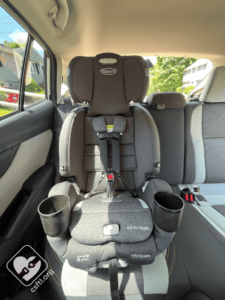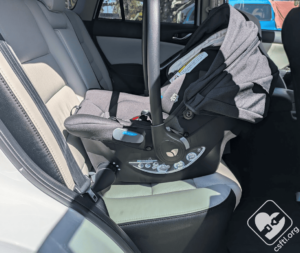PA House HAV bill progress & issues
This past week the PA House Transportation Committee significantly revised and then passed a bill granting sweeping authority to operate Highly Automated Vehicles (HAVs) in the Commonwealth of Pennsylvania. That includes light vehicles, heavy trucks, and platoons of heavy trucks. This bill has evolved over time and seems a better candidate for a final law than the older, much more problematic Senate bill.
It has some good points compared to what we’ve seen in other states, such as an insurance minimum of $1M, and placing PennDOT in regulatory control instead of Public Safety. By way of contrast, in other states the State Police are in charge of regulating (they have no real ability to do so, and realize this, but the HAV industry pushed to have it this way), and insurance minimums are as low as $25K or $50K. So we’re doing better than some other states.
The PA bill establishes an advisory committee, but it is unclear whether it will have much power, and its current mandate is to report benefits of HAVs without being tasked to report on any public safety concerns (or benefits).
However, a great number of issues identified in earlier versions have not been addressed. A very significant concern is a municipal preemption clause. For example, cities are prevented from curtailing testing of experimental, immature HAVs in school zones, even with no safety driver in the vehicle.
There are a number of other serious concerns unaddressed by this bill especially in the area of safety, but also with regard to compensation, transparency, inclusion, and non-discrimination: see Five Principles for Regulation of Highly Automated Vehicles.
A particular problematic issue boils down to who goes to jail if an HAV has a software defect that results in driving behavior that would, for a human driver, result in criminal penalties. This bill is at least clear about the “certificate holder” being on the hook, whereas other states are silent on this topic. However, it is unclear if a certificate holder who might have no understanding of HAV software and no ability to influence HAV operational safety is the right person to be sending to jail for reckless driving by an HAV that results in deaths. (Yes, this is a difficult problem. But the HAV industry has had years and years to address concerns such of this. Apparently their plan is to deflect blame away from the tech companies and onto whoever ends up holding the bag as a certificate holder.)
The manner of how HAV bills are being pushed through the legislature is also extremely disappointing. The Senate rammed through a bill that was not disclosed until the last minute with no public hearing. To its credit the House did have a public hearing on its initial bill. However, this very significant modification was kept secret until the Transportation Committee meeting voted it through along party lines. The industry certainly knows what is in the bills and amendments well in advance, because we have had public events in which they were thanked for helping author them. If they really believed that public safety was #1 and stakeholder engagement mattered, the industry would not be resorting to releasing legislation in the dead of night to ram it through votes.
I fully expect this will be pushed through both House and Senate in the most industry-friendly way that can be managed. The PA Governor has already promised to sign HAV legislation. We’re going to be stuck with regulations that disproportionately favor the industry so that they can attempt to reap the IPO and SPAC compensation rewards of chasing a trillion dollar market while exporting risks of public road testing to other road users. (Some companies are doing better than others on safety, but the industry as a whole as, for example, represented by AVIA is quite clearly all about the $$$ and not really about public safety.)
It is sad to see legislators seduced by the “jobs and economic opportunity” mantra of the HAV industry while most companies are merely paying lip service to safety. But I guess this is how it will be until we have a sufficiently high number of crashes and other adverse newsworthy events to put on public pressure to do better.
Note: there is one clause that is a potentially HUGE issue. Page 29 lines 16-18 appear to exempt any vehicle that is not strictly commercial (in practice anything except heavy trucks) from the requirement for a PennDOT certificate. It is unclear whether this is an intentional loophole or just a drafting mistake. Either way it should be fixed.
See the latest version of the House Bill here: (printers # 3200): https://www.legis.state.pa.us/cfdocs/billinfo/billinfo.cfm?syear=2021&sind=0&body=H&type=B&bn=2398
My informal Notes:
Page 16 lines 5-6: Personal Delivery Devices excluded (sidewalk bots
per https://www.penndot.pa.gov/Doing-Business/PDD/Pages/default.aspx
Those can be up to 550 pounds at up to 25 mph sidewalks and streets)
p. 16 line 11: remote driver must be within US. Still issues of how
police would do a sobriety field test etc. on someone outside their
jurisdiction. But at least precludes non-US remote driving locations.
Does not seem to preclude non-US remote monitoring so long as the remote
monitoring person is not responsible for the DDT (e.g., a safety
monitor but not a “driver” per se.)
p. 24 lines 7-14: permits cameras and other sensors to stick out from
the sides of HAVs in lieu of mirrors. Mirrors on large trucks have a
natural constraint to be placed high above ground to be visible to the
driver. This modification permits bulky boxes to be placed at a lower
height where they could hit passenger vehicles. It remains to be seen
whether this will be a problem in practical application.
p. 24 line 27-30: forbids “discrimination” against HAV operations. This
means municipalities would not be able to preclude HAV testing in school
zones, near playgrounds, hospitals, or other areas with dense
populations of vulnerable road users.
p.28 Section (J) — The report topics only covers potential benefits and not costs and risks to constituents.
Page 29 — requires a certificate to operate an HAV
Page 29 lines 16-18 — Any vehicle that “is approved for noncommercial use” per is exempt from certificate. This feels like a HUGE loophole, but I’m seeking a legal opinion as to whether that is true or there is an angle I’m missing.
Page 29 lines 24-29 — PennDOT has regulatory authority. But also implicitly municipal preemption.
Page 30 lines 3-6: PA Secretary of Transportation can order stand-down of operation of an HAV if it constitutes a hazard.
Page 32 lines 8-15: Requires PennDOT to issue certificates to anyone who
applies so long as they fill out the forms and do not have a moving
violation conviction in the past year.
Page 33 lines 24-27: Good to see that this wording says the HAV “must
achieve” an MRC, instead of other states which say it must be “capable
of achieving” with no requirement to actually perform in all
circumstances.
Page 24 line 21: $1M insurance requirement
Page 35 line 21 et seq.: permits operation of commercial truck HAVs.
Page 36 line 27 et seq.: permits operation of HAVs in transportation
network services. On page 37 PPUC is not permitted to require an HAV
driver, not required to permit additional tests, constraints,
conformance to safety standards, etc.
Page 38 line 10 et seq.: Preemption clause.
Page 38 line 23 et seq.: Gives back from preemption clause ability to police powers if they are non-discriminatory against HAVs.
Page 39 line 17: certificate holder gets police citations. (Note that
the certificate holder might have no practical ability to influence the
operation of the HAV.) This doubles down on page 41 lines 2-10
referring to certificate holders potentially being convicted of
vehicular homicide and aggravated assault by vehicle.
Page 43 lines 11-15 gives broad data secrecy protection.
p. 45 line 6: maximum THREE vehicles in a platoon
Recommendations:
Page 24 lines 26-30 should be modified to require specific safety concerns:
Change “… discriminate against a highly automated vehicle” to “…
discriminate against a highly automated vehicle without a stated reason
or condition specific to a particular location such as school zones.”
Page 28 after line 29 should add a requirement to the special report topic of:
“(6) Affects on safety to other road users.”
Page 29 lines 16-18: sounds like a huge loophole since there are no
Federal laws or regulations that meaningfully approve safety aspects of
HAVs. This part (3) should be deleted.
Page 32 regarding self-certification:
– testing with drivers in the vehicle should self-certify to conformance to SAE J3018
– all certificate holders should self-certify that they believe based on
engineering analysis that their HAV operation will be at least as safe
as a human driver operating in comparable conditions.
Page 29 lines 24-29 and section 8510 starting on page 38: municipalities
should retain the ability to further restrict HAV operation responsive
to local conditions, subject to being required to justify that any
constraints are in fact due responsive to local conditions.
Page 39 line 17: The certificate holder might have no practical way to
know or influence the safety of HAV operation. What happens when there
is a criminal negligence situation? Does some certificate holder who was
literally at home asleep in bed go to jail because of a software defect
in the ADS that they had no role in creating? There is probably no
simple explanation, but the industry who clearly had a very heavy
influence in this bill should not be permitted to get away with hanging
out certificate holders to dry while escaping exposure to police
citations for vehicles operating software that they wrote.
Page 43 lines 7-15: the HAV industry has been consistently abusing data
secrecy protections at the expense of the ability to judge their effect
on public safety. Some data should be explicitly included in
right-to-know scope, especially all police records regarding crashes
involving an HAV.
Other aspects should be improved per the Five Principles essay. The above comments are limited to addressing issues already included in the bill and not issues that didn’t even make the scope of the current wording.







